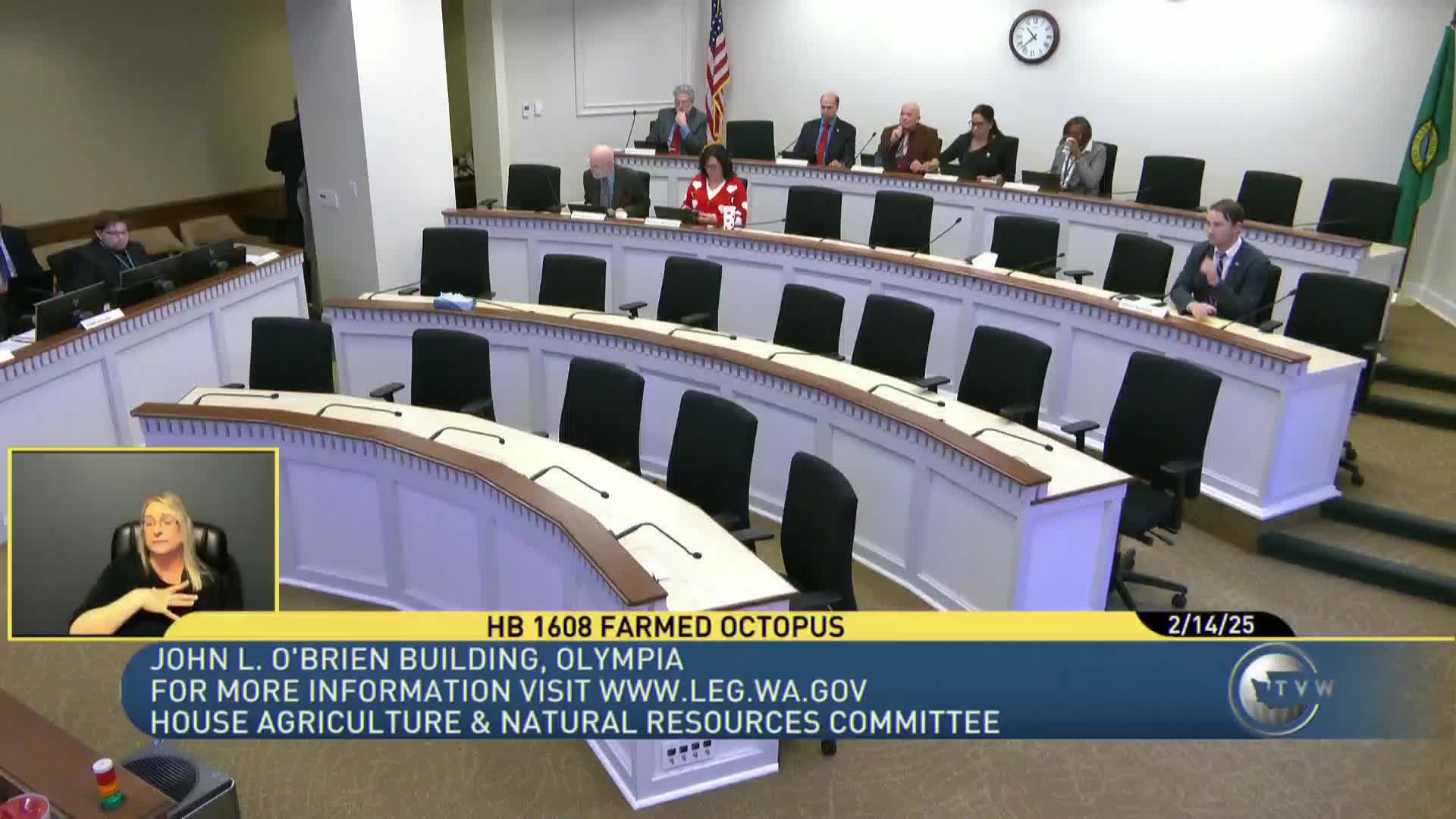Committee hears bill to ban sale and possession of farmed octopus
Get AI-powered insights, summaries, and transcripts
Subscribe
Summary
House public hearing on HB 1608 would ban selling, possessing, transporting or distributing farmed octopus in Washington, with a civil penalty enforceable by the attorney general; sponsors and animal-protection groups testified in favor.
The House Agriculture and Natural Resources Committee on Feb. 14 reviewed House Bill 1608, which would ban the sale, possession, transportation and distribution of farmed octopus in Washington and allow the attorney general to bring a civil action carrying a civil penalty of up to $1,000.
Lily Smith, committee staff, summarized the bill and its background, noting that the Legislature last year passed HB 1153 to ban the farming of octopus in the state. "The bill before you today would ban a person from selling, possessing, or transporting, or distributing farmed octopus," Smith said, and noted the $1,000 civil penalty that could be brought by the attorney general in a civil action.
Representative John Peterson (21st District), the bill's prime sponsor, said Washington has been a national leader on food- and environment-related protections and framed HB 1608 as a continuation of that work. Peterson and multiple testifiers described animal-welfare and environmental risks associated with industrial octopus farming — including high prey needs, disease risk and the animals' solitary, intelligent behavior — and argued the sale of farmed octopus would encourage harmful practices elsewhere.
Public testimony included remote and in-person statements in support. Joshua Diamond, a Seattle resident, urged committee members to "take another step towards compassion for an incredible sentient creature" and cited disease and ecological risks. Kat Kelly, representing the Animal Legal Defense Fund, testified that federal seafood-labeling rules require suppliers to indicate country of origin and method of production, and said enforcement could focus on checking supplier labels rather than physical inspection of seafood boxes. Lily Niederhofer, who described herself as an "octopus defender," said Washington's prior ban on farming set a global example and urged lawmakers to ban sales to prevent industrial farming abroad.
Representative Dent raised an enforcement question: if both farmed and wild octopus arrive in the state, how would authorities tell the difference? Rebecca Lewis, staff, said enforcement provisions in the bill are limited to an attorney general action; the bill does not create a wholesale inspection program and enforcement would rely on evidence sufficient for civil action rather than routine physical differentiation at point of sale.
Committee members suspended further executive action and paused public hearings on some other bills to continue other agenda work, and the public hearing on HB 1608 was closed at the end of the testimony period. The record shows 102 pro, 2 con and 0 other sign-ins not wishing to testify; no committee vote was taken on HB 1608 at this session.
